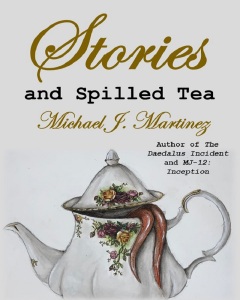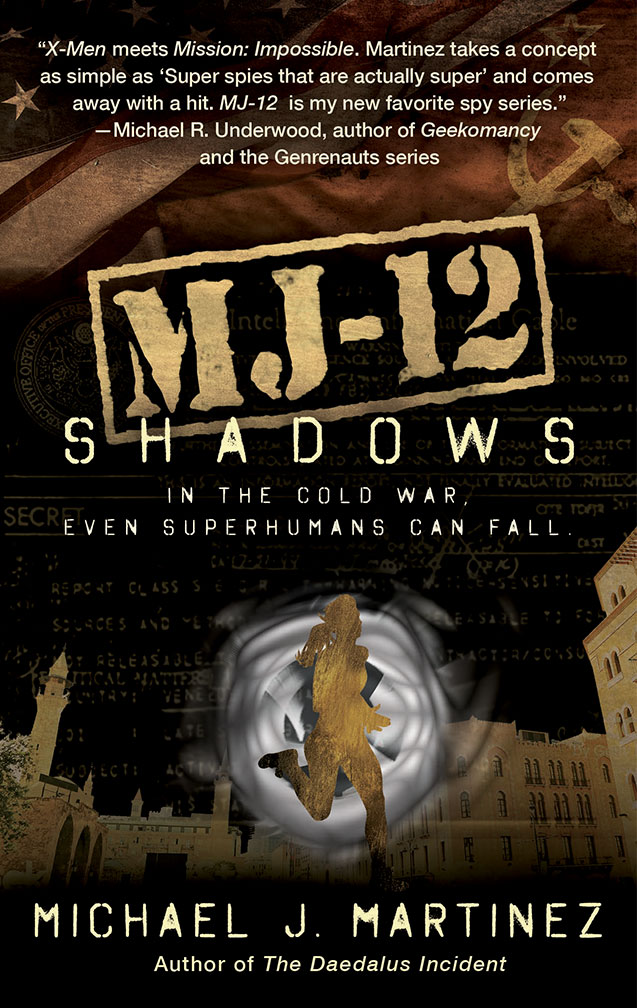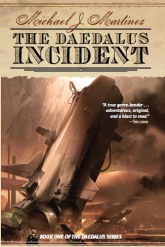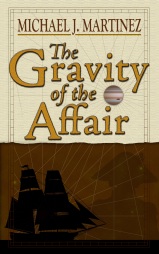Not exactly rockin’ it out on a Saturday night, but that’s fine. It’s raining, it’s getting colder. I just put down another thousand-plus words on the sequel to The Daedalus Incident that, admittedly, weren’t great words. However, I’m OK with that because, in writing those words, I hit on some ideas and themes that just snapped into place brilliantly.
As you likely discerned from the title, first drafts are indeed allowed to suck. That’s because the book, as a total entity, doesn’t exist yet. There’s no real basis for comparison, because that particular story hasn’t been written until the first draft is done. How do you measure the worth of something before it’s even finished?
That’s why I’m a huge proponent of writing an entire first draft outright, resisting the temptation to go back and revise as you go. As I write this first draft, I’m breaking all kinds of rules I set for myself, stuff I learned the hard way through writing TDI. Stuff that I should never, ever do. But in writing through that really bad scene — full of people basically sitting around talking and glaring at each other — I found where my characters’ motivations were. I uncovered how they really felt since the end of TDI. I struck upon some broad themes that I can now tease out of other parts of the book once I’m done.
The scene itself? It’ll either be radically altered or cut outright. I got two guys in there sitting around doing nothing. I got a scene set up so trite that even my characters noticed. (“Seriously, what’s up with the mastermind thing? Did we reach the boss level in the hologame?” one asked another.)
Yes, I’m willing to embarass myself as a writer by putting that craptastic quote out there because, frankly, it’ll get better. Really. That’s the whole point. Once the whole book is done, and I’ve uncovered all the little nuances and big ideas that didn’t show up in my Excel plottings, I can go back to that scene, pick up what actually worked, and discard the rest in favor of a better scene that carries far more weight.
The first draft is supposed to suck. But even as you wince through horrible dialogue, implausible scenes and stunted character arcs, you’re also coming up with the good stuff that’ll stick.
And finally, a note about The Daedalus Incident, for those interested. Honestly, there’s not much new to report at the moment; call it the calm before the storm. The good people at Night Shade are putting their finishing touches on edits to the book, and I’ve started to come up with ideas for blogging, signings, marketing and travel for 2013 in support of the launch. I’ve already got one or two things in place, and a few definite plans, but there will be more to come. Stay tuned!












And that’s exactly what took me a long time to realize, and why I had difficulty ever completing a ms. Because I kept fine-tuning before I ever got to the end. Constant rewriteritis. It was bad. Bad, I say. Until I decided just to plow through to the end, just get the words down even if they totally reaked, until I got to The End. Toughest thing I’ve ever done. And it’s hard to go back and start another one and do the same thing.
I think of them as sketches. You put down broad strokes to capture the pattern and shapes, but no color and little detail. That comes later. I don’t know about you, but I also find the computer age makes the concept of “drafts” a bit more fuzzy. Back in high school, when I wrote on a typewriter, those were drafts. Now I find I will write and rewrite a chapter, a chunk, until it feels “finished” and then move on to the next.
I still find I work in complete drafts. Especially for the first draft, I just need to get the bones of the piece done, all at once. If I go back in the middle, I’ve found there’s too much of a chance for me to dig up new stuff, which would then prompt me to go back further to work things in. For me, personally, I need that holistic view of the entire book after each draft. But however it happens, the key is to keep driving forward and not get bogged down.